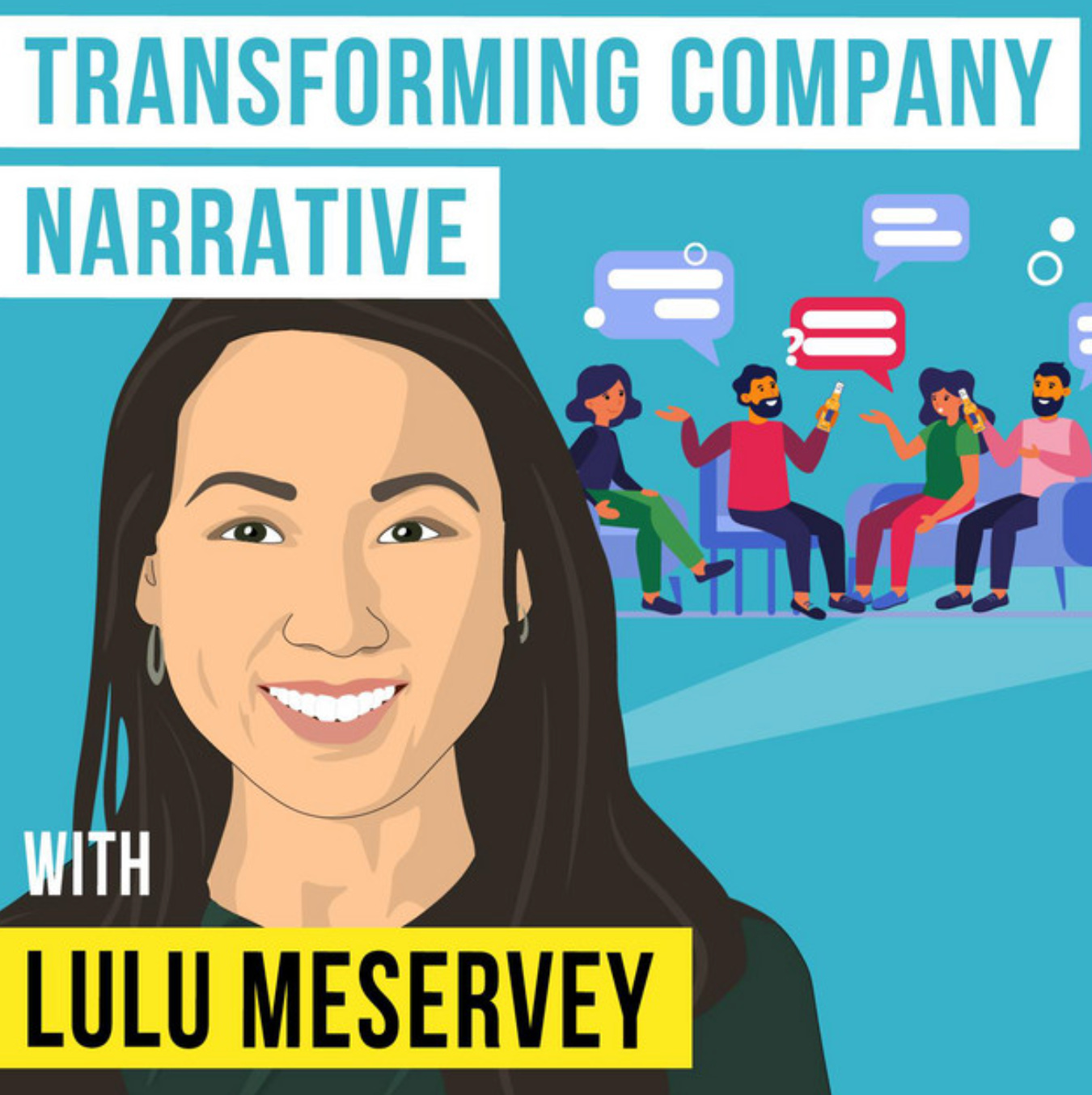Friday Ideas 11/8: Tyler Cowen and Rick Rubin, JD Vance, Paul Simon, Miles Davis, Lulu Meservey, Freaks + more
Trying something new — sharing a wide range of things I enjoyed this week from podcasts to films. Some include transcribed highlights and others are simply links with quick comments.
Curious to see what you think. If you enjoy any of the ideas or links in particular please let me know.
Tyler Cowen interviewed by Rick Rubin (Podcast on Apple or Spotify)
I enjoyed hearing someone with an arts background interviewing Tyler — he’s usually interviewed by academics or startup-adjacent people. Tyler is at his best when he’s pulling from a wide range of ideas and subjects and Rick does a good job of encouraging it.
Below are some excerpts about “creative/innovative scenes,” the definition of success, why weirdos drive progress, and learning from your source’s sources:
Rick Rubin: What's the recipe for places that have revolutionary changes for the Renaissance? Silicon Valley, Paris in the 20s? What are the seeds?
Tyler Cowen: A certain degree of competition, a cluster of talented people who are rivals but who also help each other. Effective social networks. Typically, there are new technologies coming along.
[…]
So there's a whole new medium that people like Leonardo can experiment with, just like the electric guitar. A lot of the earliest people did the most with it because over time, these things become repetitive.
So having this magic collection of different facts about the world come together the small groups, the networking, the growth in wealth, the new technologies, and most importantly, the sense of believing you're doing something really important, which you see, say, in 1960s music, it might be in some rap today, but for the most part, I don't see it in very contemporary music. But it's so strong. Earlier on in popular music, this stuff really mattered. The Beatles sing all you need is love and the world is shaken.
Rick: What do you view as success?
Tyler: Learning more, staying in good health, being around people I care about, and I take care of them, they take care of me. All of those things. I think one needs all of them.
Tyler: Increasingly, top businesses in the United States are led by weirdos rather than conformists. And that was not the case decades ago. And in many countries, say Denmark, like their four biggest companies, date from the 1920s or earlier. They're fine companies, but are they truly all going to be led by weirdos?
Rick: Do you think the weirdo factor currently in the US is based on creators?
Tyler: People who are starting companies, they start as hackers or programmers, but then they realize the idea they have is so good, it can be a company. And then at some point they realize it can be a world shattering company like Facebook or Stripe or the other tech companies whose names we all know. And it just takes off. But they were Tinkerers in the sense that a lot of the early great musicians were Tinkerers.
People in the Industrial Revolution were tinkerers. Religious leaders may have been a kind of tinkerers with ideas, and then they realize they're on to some larger enlightenment, but they start by playing with ideas. I think that might have been the case in the past as it related to tech, because usually it would be an engineer who was interested in making something that would run those businesses, at least at first.
Rick: If someone that you're interested in references something, will you always go back to the source?
Tyler: Yeah, I'll try and try again. I don't like it when people dismiss things. It's fine to disagree, or there's things in music that maybe I don't listen to as much or don't understand. Like there's still a lot in country and western I feel I don't understand. Maybe I don't have the cultural codes or don't know enough, but I don't dismiss it, even though if I listen more, maybe I never would love it like I love some other things.
JD Vance’s February 2024 talk at a startup event presented by YC and Bloomberg Beta (Full video and transcript)
I previously shared this 3 months ago when Vance was picked as the VP running mate but it’s especially relevant now.
Miles In France 1963 & 1964 - Miles Davis Quintet (Spotify | Tidal)
Nearly 6 hours of sublime performances It took me a long time — many years! — to get into jazz but I made the effort because so many writers, musicians, filmmakers, etc, love it. The struggle was worth the reward and this release feels like a genuine grand prize.
Lulu Meservey on “Going Direct” with company narratives (Podcast on Apple or Spotify)
Lulu has burst onto the tech scene with her communications firm Rostra and works with many of the top companies on how they tell their story or deal with crisis scenarios.
Lulu Meservey: You have to figure out a way to speak to people directly with your voice, your passion, your vision, and not have it trickle down too far because you lose the thing that's special. There can be too many middlemen such that by the time your message reaches people, it's been watered down beyond recognition and it's not special anymore.
Lulu: Communication is a vector, not a scalar. It only matters if there's a direction attached to it. And if you know that your direction is, we have to get more customers or we're going to go raise a round at the end of this year, or we need to get this thing done with regulators. Whatever the big goals are, all the comms should be pointed in that direction.
Lulu: So number one is the founder knows what they're about, and they're willing to take on the responsibility of being the keeper of the vision and the message. Two is the company has to have clear goals that they're working toward. Three, related to two, is you have to know the audience. And know your audience is actually a cliche at this point.
It's become so much of a truism that it's faded into the ambient background and people don't think about it enough. Maybe we should rebrand it or something so it becomes fresh and salient again. But know your audience is important, because if you're talking to the wrong people, it's worse than talking to nobody. Partly because of the expended time, and partly because you might be making new enemies or making unwanted friends that then tie you down in unpredicted ways. So I think of the audiences as here are the people who actually have a say in the future of the company.
Lulu: I wouldn't make it a core part of your strategy to convert people who hate you. If you're going to engage with them at all, you might consider letting them attack you until they overstep in order for you to round up your true allies. That's a good use as foil. And then there's the swing voters. It's the people who actually could be your people, but they just don't know it yet.
Just like in an election, the swing voters are deserving of a disproportionate amount of attention.
Lulu: Everything and every person is a thousand things. You could describe yourself in a thousand ways if you were forced to. There's enough material there. Every product or company can be described in a thousand different ways. The taste and discretion and creativity in describing it in the single best way and choosing the number one best.
One out of the thousand is where a lot of that skill lies. This founder Mode essay, PG's essay that went viral over the weekend, I think more than half of that was a great name. It was simple, it was familiar. People understood it, but it was also new. Derek Thompson at the Atlantic has written a whole book about what makes things go viral, and he talks about blending the novel with the familiar and that being a magic formula, finding a way to describe what you're doing that is simple, crisp, and familiar.
Lulu: Don't listen to your lawyers and never apologize if you didn't do something wrong, and if you don't mean it because you'll regret it later if you talk to founders who apologize for something at the time, the woman who was kicked out of the wing, for example, she went back later and said she wished she hadn't done that whole routine. They always regret it because you compromise yourself and you do compromise yourself for nothing. Because an apology doesn't appease people, especially if you didn't do anything wrong.
And it's insincere. One, they can tell if you don't mean it, but two, if you didn't do anything wrong, then by definition there's nothing to apologize for. So apologizing isn't going to change the situation. So do not apologize for something you didn't do wrong. If you did something wrong, apologize wholeheartedly.
This is the Ben Horowitz if you're going to eat shit, don't nibble. I subscribe to that. It starts with the ground truth of did you mess up? If you did, apologize, and if you didn't, don't apologize. It's so simple and people get it so wrong, they'll start apologizing or not apologizing based on all sorts of other garbage factors.
Lulu: Prospect theory tells us people fear downside more than they want upside. It's a lot easier to tell them this current state that we're all living in is unacceptable. And now we're so close to something a lot better.
That's easier to tell them. And you can say truthfully than to say, things are fine now, but they could be even better
Lulu: What gives you a right to exist and to take up space on this earth and to take up any of our time? The most important thing is what is missing in the world today that only you can fill. And a lot of companies are never able to answer that question, and it makes it hard to invest in that company. If I'm going to bet my career on you, I'm going to go leave Google to bet everything on you.
Your equity will be the financial security for my kids and my grandkids. And you're telling me that you can't name something that would go missing in the world if you were to vanish tomorrow? It's dereliction. That question has to be answered for you to not only have a manifesto, but to have a company.
Paul Simon and Edie Brickell’s Bad Dream (Spotify | Tidal)
It’s pretty simple: if Paul Simon releases something new I’m excited to hear it. This is, I believe, the first recording he’s ever made with his wife. They’re joined by the legendary drummer Steve Gadd who he’s worked with since the 70s and a few other top shelf players.
Freaks (stream the film for free on Internet Archive)
This is a 1932 film about a circus sideshow (“freak show”). It starred actual circus performers with significant physical disabilities (conjoined twins, people born without limbs, etc) who travelled around in real life exhibiting themselves.
Given the era, I expected exploitation but found something else entirely: a moving story about outsiders building a community, finding acceptance, and dealing with external threats.
The film proved too controversial for its time. Censors banned it across multiple states and countries - not for exploitation, but because they felt "normal people" shouldn't see those who looked so different. It's hard to believe this came from Tod Browning, who'd just directed the iconic "Dracula" the year before. "Freaks" effectively ended his career.
It isn’t an easy watch but I can't recommend it enough.
That’s it for this week. Decent variety? I don’t call this Multitudes for nothing.





